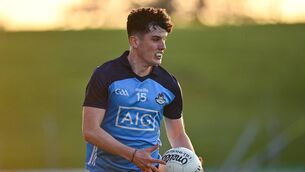Dream Cork job available, but may lead to restless nights
Finding a new manager for the Cork senior hurling team shouldn't be a problem. Donal O'Grady's resignation leaves a dream job open, and steering the All-Ireland champions should be the peak of ambition for any hurling coach. However, applicants should be mindful of the magnitude of the task involved. Cork selector John Allen gave us a glimpse of the workload.
"Even during the league you're out three nights in seven," said Allen. "By April you're out four nights in seven, rising to five nights a week during the championship. That's not counting meetings with players, other selectors and backroom staff."














